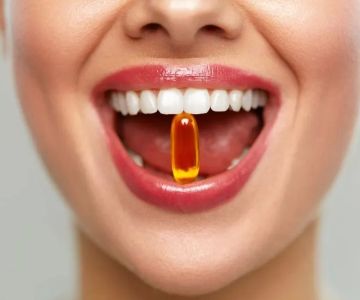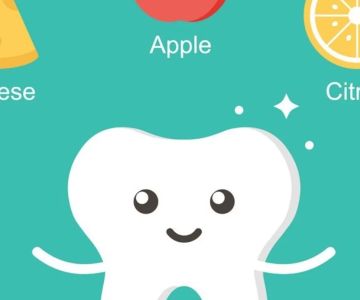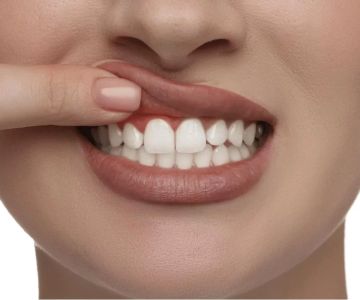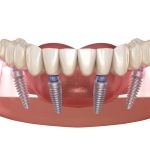Understanding the Role of a Mechanical Soft Diet After Oral Surgery
After undergoing oral surgery, it is crucial to follow a diet that promotes healing while being gentle on your healing mouth. A mechanical soft diet is often recommended for individuals recovering from oral surgery, as it provides the necessary nutrients while avoiding foods that could irritate or disrupt the healing process.
1. What is a Mechanical Soft Diet?
A mechanical soft diet consists of foods that are easy to chew and swallow. It includes softer foods that don't require much effort to break down, and it can be adjusted depending on the patient's specific condition after surgery. The purpose is to reduce the strain on the mouth and avoid any food that might cause discomfort or damage to the sensitive tissues that are healing.
2. When is a Mechanical Soft Diet Used?
Typically, a mechanical soft diet is used after oral surgeries such as tooth extractions, jaw surgeries, dental implants, or any procedure that requires the patient to recover from swelling or irritation in the mouth. It is generally recommended for a period of 1 to 2 weeks following surgery, though the duration can vary based on the surgeon's advice and the healing progress.
3. Why is a Mechanical Soft Diet Important After Surgery?
The primary goal of a mechanical soft diet is to ensure that patients are still able to get the nutrients they need while avoiding complications during the recovery phase. Eating soft foods reduces the risk of injury to surgical sites, minimizes pain, and allows for proper healing. Additionally, it helps maintain adequate nutrition, which is vital for the body's healing process.
4. What Foods Should You Include in a Mechanical Soft Diet?
When on a mechanical soft diet, you'll want to focus on foods that are easy to chew, nutrient-rich, and won't irritate your healing tissues. Some of the best options include:
- Mashed potatoes
- Scrambled eggs
- Yogurt and smoothies
- Pureed soups
- Cooked vegetables (like carrots and squash)
- Soft fruits (bananas, applesauce, avocados)
Avoid foods that are crunchy, hard, or sticky, such as chips, raw vegetables, and nuts, as these can cause discomfort or injury to the healing areas in the mouth.
5. Tips for Eating a Mechanical Soft Diet
Transitioning to a mechanical soft diet can be a challenge, especially if you're used to eating more solid or textured foods. Here are some helpful tips to make the process easier:
- Cut food into small, bite-sized pieces to make it easier to chew.
- Opt for moist foods that don’t dry out your mouth.
- Consider blending or pureeing foods to make them easier to swallow.
- Ensure you are getting a variety of nutrients by incorporating different foods, such as proteins, vegetables, and fruits.
6. How Long Should You Follow a Mechanical Soft Diet?
The duration of the mechanical soft diet depends on the extent of the surgery and how quickly your mouth heals. Typically, this diet is followed for 1 to 2 weeks post-surgery. However, it's important to follow your dentist or surgeon’s recommendations and gradually return to a normal diet when they advise it. This ensures that the healing process isn't hindered by food choices.
7. Additional Considerations for Oral Surgery Recovery
In addition to following a mechanical soft diet, it's important to stay hydrated and maintain good oral hygiene during recovery. Drinking water and other hydrating liquids like non-citrus juice can help keep your mouth moist and aid in the healing process. If you're unsure about what to eat or how to take care of your mouth during recovery, don't hesitate to ask your dental professional for personalized recommendations.
Maintaining a proper diet and following your recovery plan will not only help you heal faster but also reduce the risk of infection or complications.







 Adelante Healthcare3.0 (348 review)
Adelante Healthcare3.0 (348 review) NÜVA Smile4.0 (105 review)
NÜVA Smile4.0 (105 review) Oral Surgery Services Inc4.0 (89 review)
Oral Surgery Services Inc4.0 (89 review) Dr. Samantha L. Cho, DDS5.0 (3 review)
Dr. Samantha L. Cho, DDS5.0 (3 review) Cox Erin E DDS3.0 (3 review)
Cox Erin E DDS3.0 (3 review) Oral Sleep Appliances, LLC0.0 (0 review)
Oral Sleep Appliances, LLC0.0 (0 review) The Importance of Oral Health Education During Pregnancy for a Healthy Pregnancy
The Importance of Oral Health Education During Pregnancy for a Healthy Pregnancy Best Tips for Brushing Your Teeth Properly for Healthy Gums: Essential Techniques for Oral Health
Best Tips for Brushing Your Teeth Properly for Healthy Gums: Essential Techniques for Oral Health Why Skipping Dental Checkups Can Lead to Bigger Oral Health Problems
Why Skipping Dental Checkups Can Lead to Bigger Oral Health Problems Advantages of Porcelain Dental Restorations
Advantages of Porcelain Dental Restorations How Can Diabetes Cause Tooth and Gum Problems? Preventing and Managing Oral Health Issues
How Can Diabetes Cause Tooth and Gum Problems? Preventing and Managing Oral Health Issues Healthy Habits for Promoting Good Oral Health and Hygiene: Tips for a Healthy Smile
Healthy Habits for Promoting Good Oral Health and Hygiene: Tips for a Healthy Smile